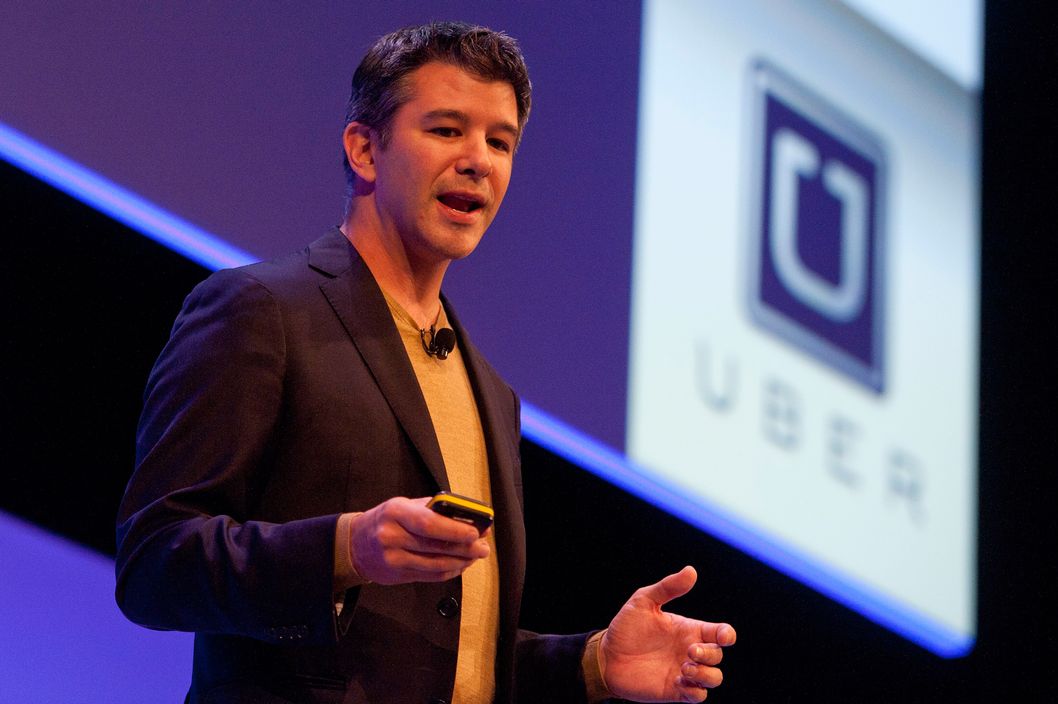Uber Just Stuck a Knife in the Republican Party’s Heart
By Jonathan Chait Follow @jonathanchait
The destructive power of this blunt statement works in two ways. The first, of course, is that it rebuts the Republican indictment of Obamacare, opposition to which is a matter of holy writ within the party. Of all the grounds for Republican hatred of Obamacare, the most deeply held is the belief that it amounts to onerous regulation that holds back capitalistic dynamism. That belief is not only foundational on the right, but nebulous enough that, even as conservative predictions about Obamacare’s cost and functionality obviously fail, the deeper suspicion that it is invisibly rotting away the foundations of capitalism can linger without any real evidence.
Advocates of health-care reform always insisted that the law would enable entrepreneurship rather than inhibit it. By eliminating the need for workers to secure insurance through employer-based coverage, they are free to switch into more productive work or to start up their own firm and obtain individual insurance. In 2010, Nancy Pelosi explained that the law would enable people to pursue whatever work best suited their talents. “Think of an economy where people could be an artist or a photographer or, eh, a writer without worrying about keeping their day job in order to have health insurance,” she said, “or that people could start a business and be entrepreneurial and take risk but not [be] job-locked because a child has asthma or someone in the family is bipolar.”
Conservatives subjected this quote — often just the truncated first half of it — to endless mockery. But Pelosi was completely correct about this. Indeed, as BuzzFeed also reported last month, Obamacare has played a major role in enabling the sharing economy, which relies on the kind of flexible labor force that is hard to generate without a functional individual insurance market.
What makes Kalanick’s comments not just cutting but a knife thrust to the Republican heart is that Uber is the very model of the sort of firm the party covets. Republicans actually circulated a pro-Uber petition and sought to brand itself in general as the party of Uber. Uber sits in the tiny overlapping Venn diagram center of the party’s reputational needs. It represents their idealized self-image as advocates of dynamism rather than existing privilege, new technology rather than financial manipulation or resource extraction, and its is urban rather than rural.
It is not merely bad luck, though, that has brought the GOP’s Uber strategy into fatal conflict with Uber itself. The underlying problem is that the Uber strategy bears no relationship to the party’s actual agenda.
One can certainly find plenty of cases of onerous government regulation. The trouble is that Republicans have focused their anti-government animus on Washington, while the most burdensome forms of government intrusion exist on the state and local level. (The main example of unjustified, socialistic big government remaining in Washington is farm subsidies, which enjoy strong Republican support.) And, as Josh Barro points out, insofar as Republicans have any impact on onerous local regulation over things like transportation and job licensing, they have endorsed rather than opposed them, for a simple reason: These regulations are supported by incumbent business owners, a Republican constituency.
The Republican economic agenda is mainly focused on eliminating regulations on Wall Street and allowing energy firms to pollute the atmospheric commons free of charge. Of course, they also favor a tax code that allows rich people to pay much lower levels of tax. But to the extent that the free market agenda runs into conflict with the interests of the rich, Republicans almost invariably side with the latter over the former.
This reality has grown into a major political liability. Their idealized image of Uber presented the latest and most promising chance to alter their plutocratic image, but it was destroyed by the reality of Uber.
No comments:
Post a Comment